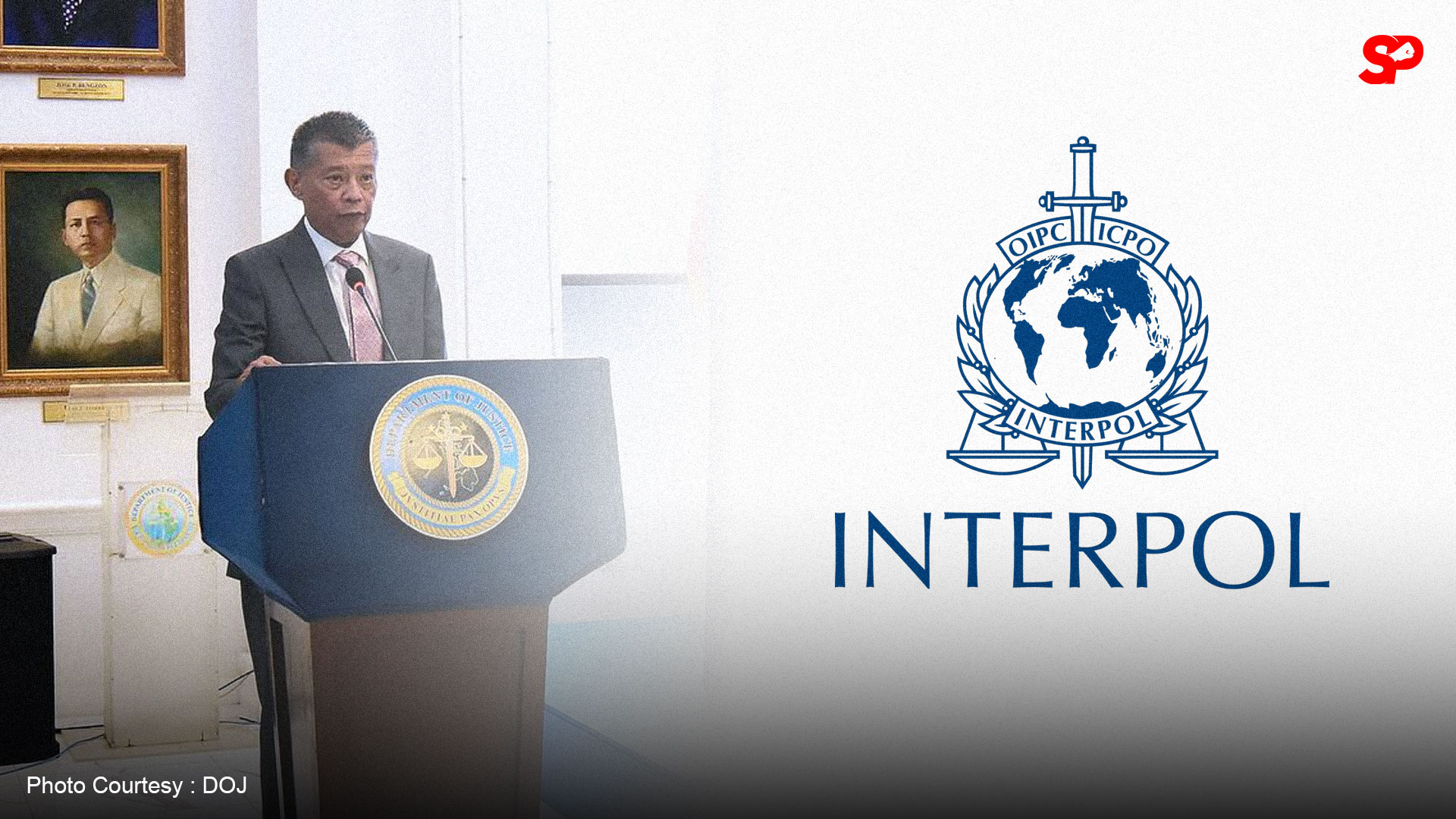MANILA – The Department of Justice (DOJ) on Wednesday reiterated that the Philippine government remains obliged to honor the terms of its membership with the International Criminal Police Organization (Interpol).
The DOJ issued the statement in relation to reports that the International Criminal Court (ICC) may seek the help of the Interpol to gain jurisdiction over former president Rodrigo Duterte to probe his administration’s war on drugs.
“Allow us to reiterate the DOJ’s position for clarity, the Secretary (Jesus Crispin Remulla) has repeatedly said that despite the withdrawal of the Philippines from the Rome Statute, the country remains a member country of the Interpol,” the justice department said in a statement.
“Thus, when requests are made by the ICC through the Interpol and Interpol, in turn, relays such requests to our country, the Philippine government is legally obliged to accord due course to the same, by all means,” it added.
Earlier, Malacañang said the Philippine government will respect Duterte’s decision to surrender to the ICC in the event that he is found guilty of alleged crimes against humanity committed during the implementation of his anti-drug campaign.
“If the former President desires to surrender himself to the jurisdiction of the ICC, the government will neither object to it nor move to block the fulfillment of his desire,” Executive Secretary Lucas Bersamin said in a statement.
Bersamin issued the statement, after Duterte, during the House quad committee hearing on Wednesday, challenged the ICC to begin its investigation into the drug war launched under his watch.
Duterte said he is also willing to “go to prison and rot there for all time,” if found guilty.
Bersamin said the government would cooperate with the ICC, in case the international tribunal opts to issue a “red notice” to Philippine authorities through the Interpol.
“But if the ICC refers the process to the Interpol, which may then transmit a red notice to the Philippine authorities, the government will feel obliged to consider the red notice as a request to be honored, in which case the domestic law enforcement agencies shall be bound to accord full cooperation to the Interpol pursuant to established protocols,” he said.
In August this year, Remulla said the country has no recourse to stop Interpol in case it serves an arrest warrant against Duterte and others named in the ICC’s investigation into the drug war deaths during his administration.
“If a problem arises, they (ICC) will bring it to Interpol. We are members of Interpol, and we do not block any movement of Interpol unless a policy contradicts our international commitments. The future issue at hand now is that if a warrant of arrest is issued, it’s Interpol’s job to serve it. And we have a duty to Interpol,” Remulla said during a Kapihan forum with reporters.
He noted that under the principle of comity, the Philippine government will not obstruct anything as long as it does not violate the country’s laws.
“The principle of comity dictates that we remain friendly and do not block any legal actions they undertake. If they engage in illegal activities, then we will not tolerate that if they violate our laws,” he said. (PNA)

